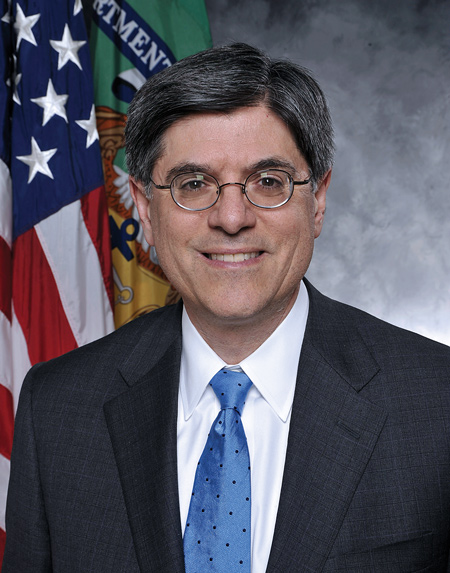$54 Billion Shire Buyout Offer Raises Ire in Washington

After Dublin-based Shire Pharmaceuticals rejected four previous buyout offers over months from U.S. drugmaker AbbVie for being too low, the company recently agreed to buy the Irish pharmaceutical maker for $54 billion, which is, according to the New York Times, this year’s biggest takeover deal, the largest ever inversion deal, and, if it comes to pass, would create one of the 50 largest companies in the world.
Shire is incorporated on the U.K. island of Jersey, which, the Wall Street Journal notes, is a tax haven. And while AbbVie plans to keep its operations base in Chicago, the company also intends to move the new company’s tax headquarters to the U.K., which will lower its tax rate from the current 22% to 13% by 2016. In the event that AbbVie does acquire Shire, the Irish company’s shareholders would then own about 25% of the new company, WSJ said. And that would place the combined company well enough above a 20% ownership threshold that could allow AbbVie to change its tax residence—a move known as an inversion.
AbbVie’s latest offer raised a lot of ire in Washington, D.C. and U.S. Treasury Secretary Jacob Lew immediately sent letters encouraging senior members of Congress to pass legislation to stop inversions—retroactively—possibly stymieing AbbVie’s move, the Times reported. Vermont Independent Senator Bernie Sanders also proposed amending existing legislation to prohibit federal contracts awards to companies that move overseas.
Senator Sanders went as far as to call U.S. companies who practice inversion “traitors,” according to WSJ, and said in a statement, “If you want the advantages of being an American company then you can’t run away from America to avoid paying taxes.” AbbVie CEO and Chairman of the Board Richard Gonzalez said in a conference call with WSJ that he’d rather see the debate about tax inversions focus instead on U.S. tax reform. Multinational U.S.-based companies, according to Gonzalez, are disadvantaged internationally due to the current U.S. corporate tax structure.
Valeant buys PreCision for $475 Million

Specialty pharma giant, Valeant Pharmaceuticals International, Inc., recently announced its completed acquisition of Rhode Island-based PreCision Dermatology, Inc. for $475 million in cash, plus an additional $25 million that will be payable upon the achievement of a sales-based milestone. PreCision specializes in developing and marketing dermatology products such as Locoid, Hylatopic and Clindagel, and expects approximately $130 million in revenue in 2014.
“PreCision Dermatology has a wide range of medical dermatology products that treat a number of topical disease states such as acne and atopic dermatitis, and should bring tremendous value to Valeant’s medical dermatology portfolio,” Chairman and Chief Executive Officer of Valeant, J. Michael Pearson said in a statement. “Furthermore, PreCision’s diversified portfolio of products enjoys high physician loyalty, premium product quality and lifecycle management opportunities that will enhance our future growth strategies. We believe this acquisition will strengthen Valeant’s product portfolio and solidify our position as a leader in dermatology.”
Valeant also develops, manufactures and markets a range of pharmaceutical products in areas including dermatology, eye health, neurology and branded generics.
Mylan Releases Generic Micardis Tablets
Mylan announced the release of the generic version of Boehringer Ingelheim’s Micardis tablets, called telmisartan tablets USP. The release comes after the FDA gave final approval for the company’s Abbreviated New Drug Application (ANDA). The tablets are indicated to lower blood pressure in people with hypertension (high blood pressure). Dosages include 20 mg, 40 mg and 80 mg. According to IMS Health, sales of telmisartan tablets USP came to $259.2 million in the U.S. for the year ending March 31, 2014. Mylan also has 305 ANDAs pending FDA approval that IMS reports represents $107.2 billion in annual brand sales.
UDG Buys Galliard and Nyxeon

One of the leading international providers of healthcare services, UDG Healthcare, recently acquired specialist agencies Galliard and Nyxeon, which are healthcare and scientific public relations agencies, respectively. The two companies will add new capabilities in data driven healthcare and scientific public relations to UDG’s global healthcare communications business, Ashfield Healthcare Communications.
Liam FitzGerald, Chief Executive of UDG Healthcare said in a statement, “We are delighted to announce the acquisition of Galliard and Nyxeon. This purchase is fully aligned with our global growth strategy of extending the range of services we offer in high value multi-channel healthcare communications and follows the successful acquisitions of InforMed, Watermeadow and more recently, KnowledgePoint360.”
AstraZeneca and Max Planck Institute Unite to Fight Heart and Metabolic Disease
AstraZeneca is joining with the Max Planck Institute of Molecular Physiology (MPI), Germany, to establish a “satellite unit” in cardiovascular and metabolic disease (CVMD), linked to AstraZeneca’s CVMD Innovative Medicines unit (iMed) in Mölndal, Sweden, to study new modalities chemistry. In fact, the company’s scientists will now work alongside Institute researchers in the Department of Chemical Biology, and the satellite unit will focus on novel chemistry and chemical biology in areas of new modality chemistry such as stabilized peptides, macrocycles and conjugation chemistry.
“I’m very pleased to collaborate with an internationally recognized academic institution such as the Max Planck Institute of Molecular Physiology,” Marcus Schindler, Vice President and Head of CVMD iMed, AstraZeneca, said in a statement. “We are confident that this innovative new partnership will result in exciting scientific findings addressing chemical challenges primarily in the field of new modalities.”
Frontline Medical Communications and NORD Partner Up for Rare Diseases
Addressing the need for medical education in diagnosing and treating rare disease, Frontline Medical Communications (FMC) recently formed a strategic partnership with the National Organization for Rare Disorders (NORD). The two groups will collaborate to develop innovative educational programs for HCPs. The companies also intend to update HCPs on new treatment options and clinical care standards and facilitate sharing of information among HCPs and rare disease experts. The collaboration aims to shorten diagnosis time and promote optimal treatment and management strategies for people with rare diseases.



